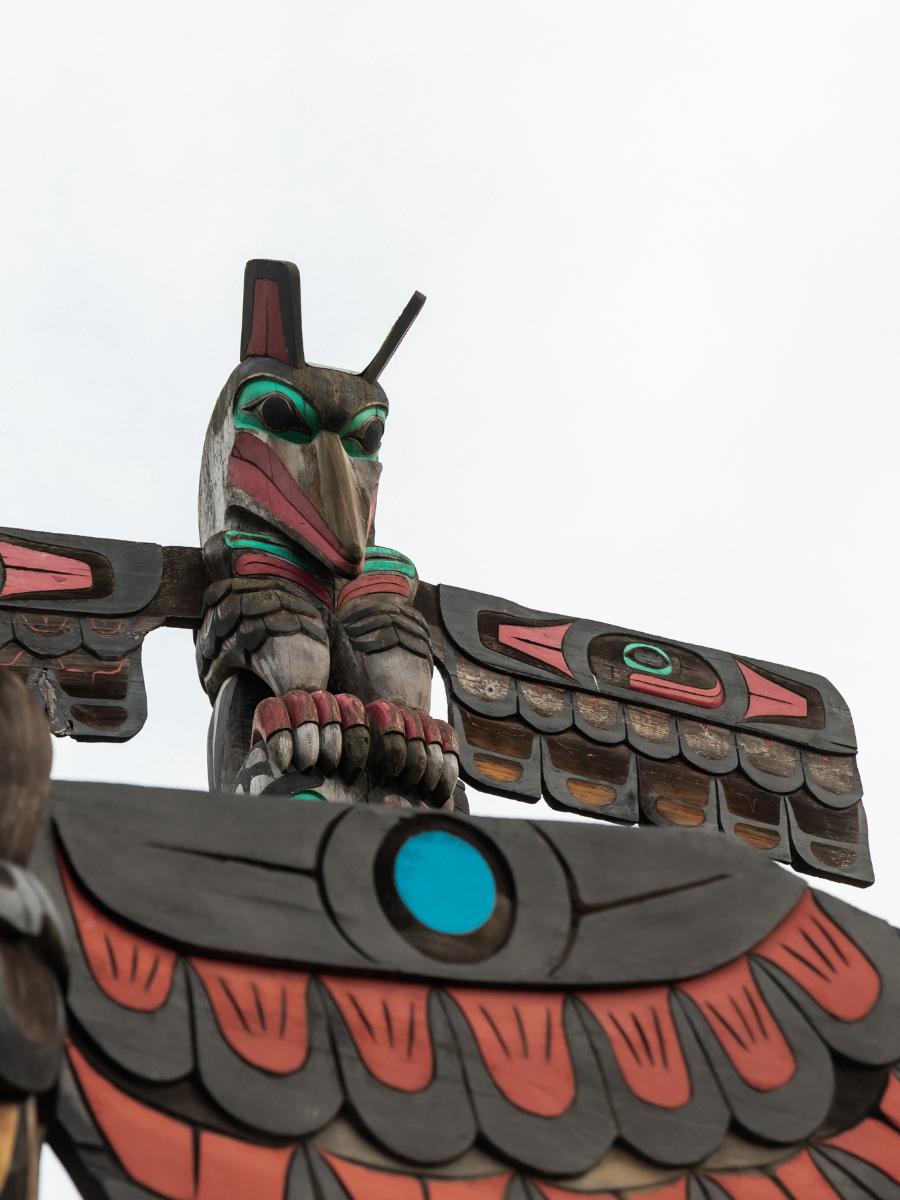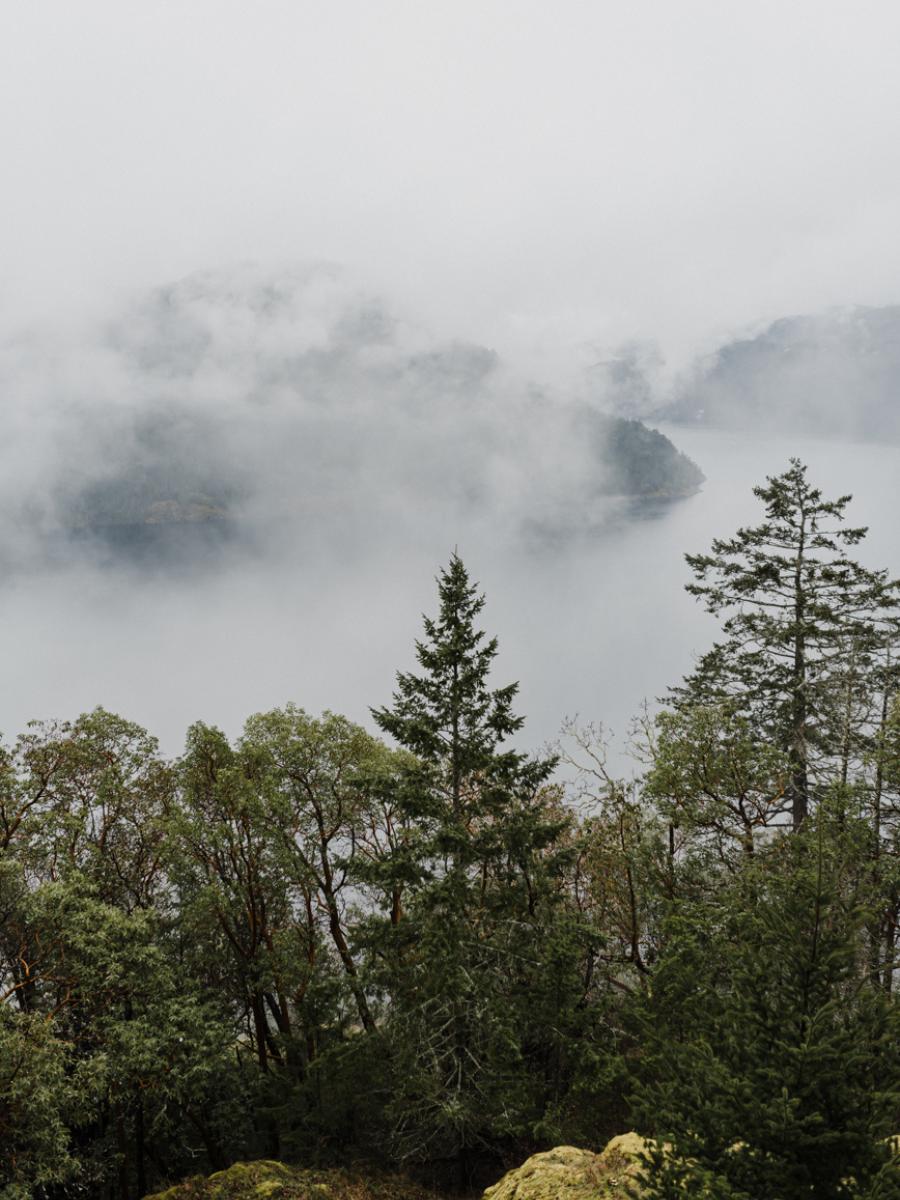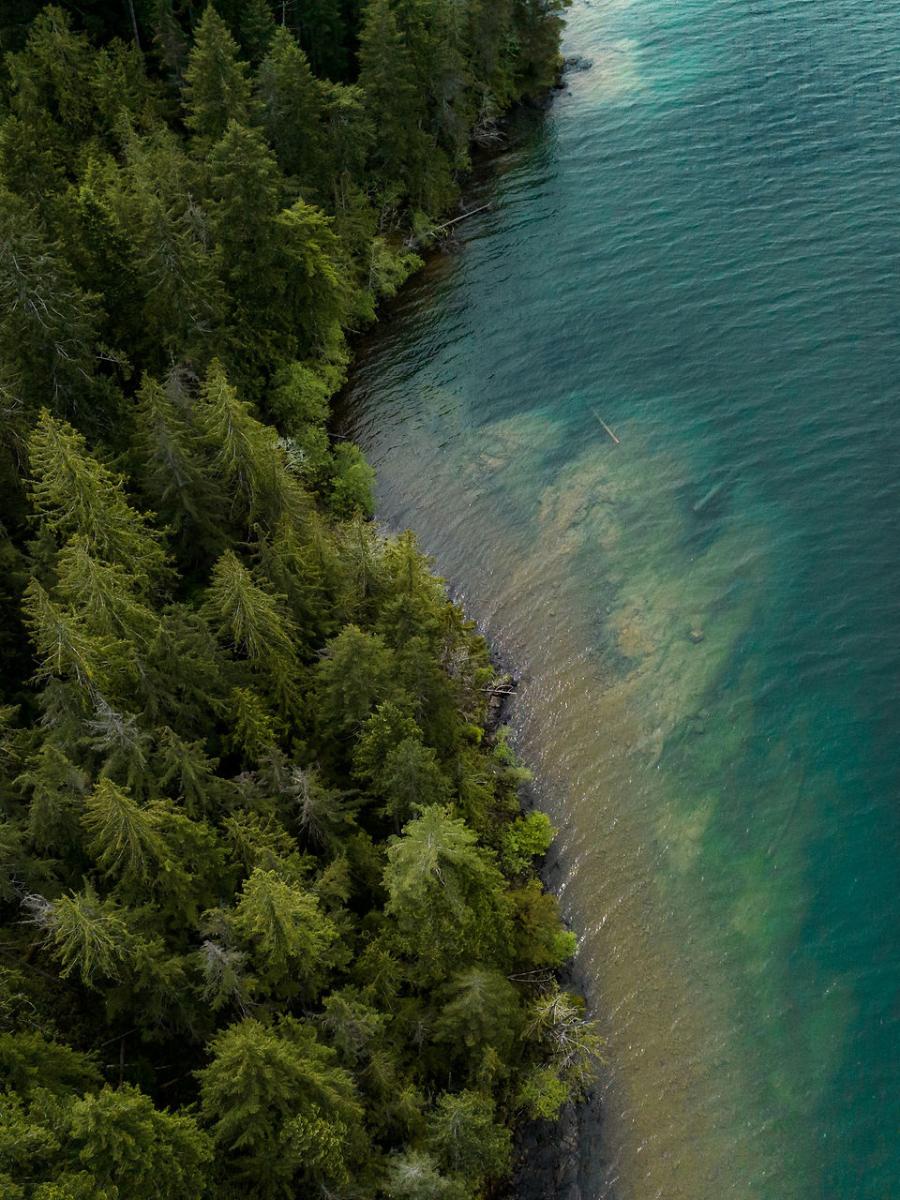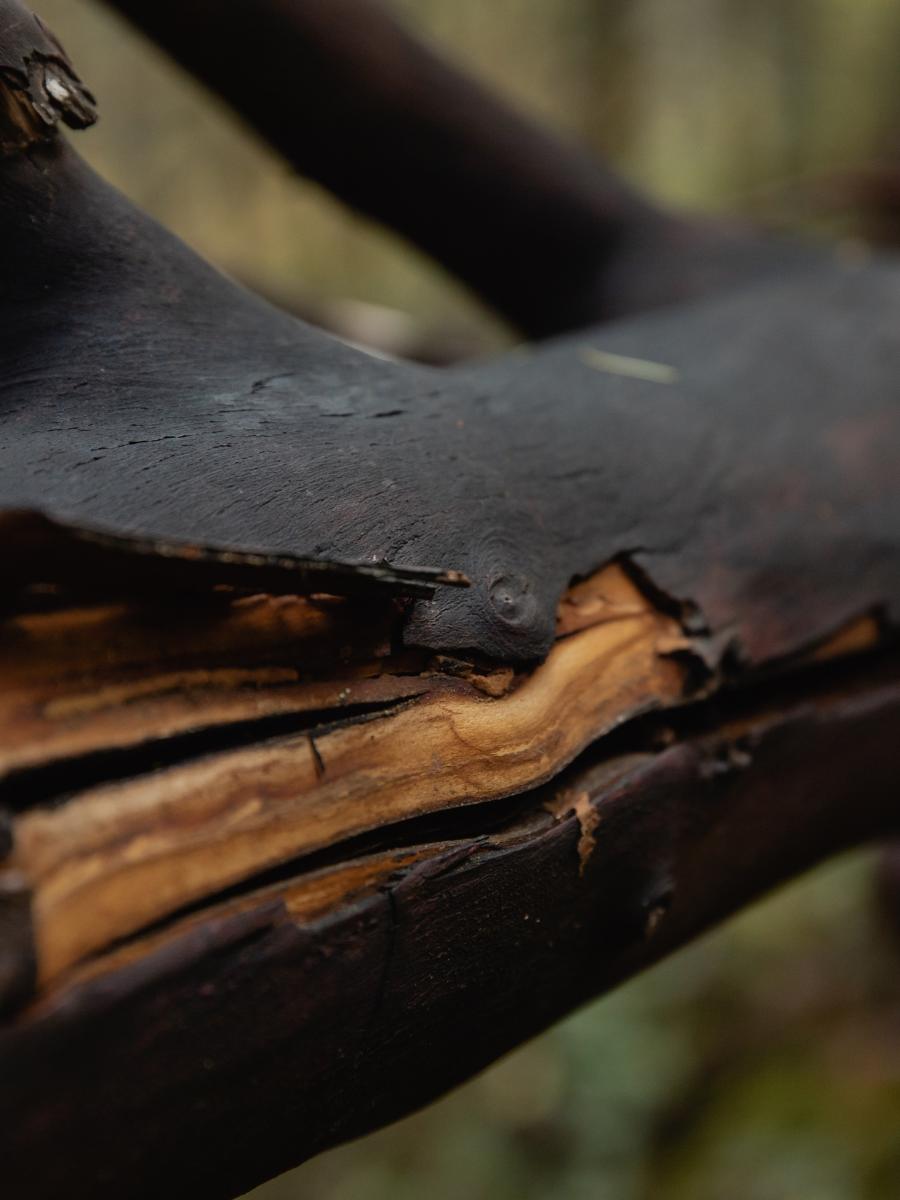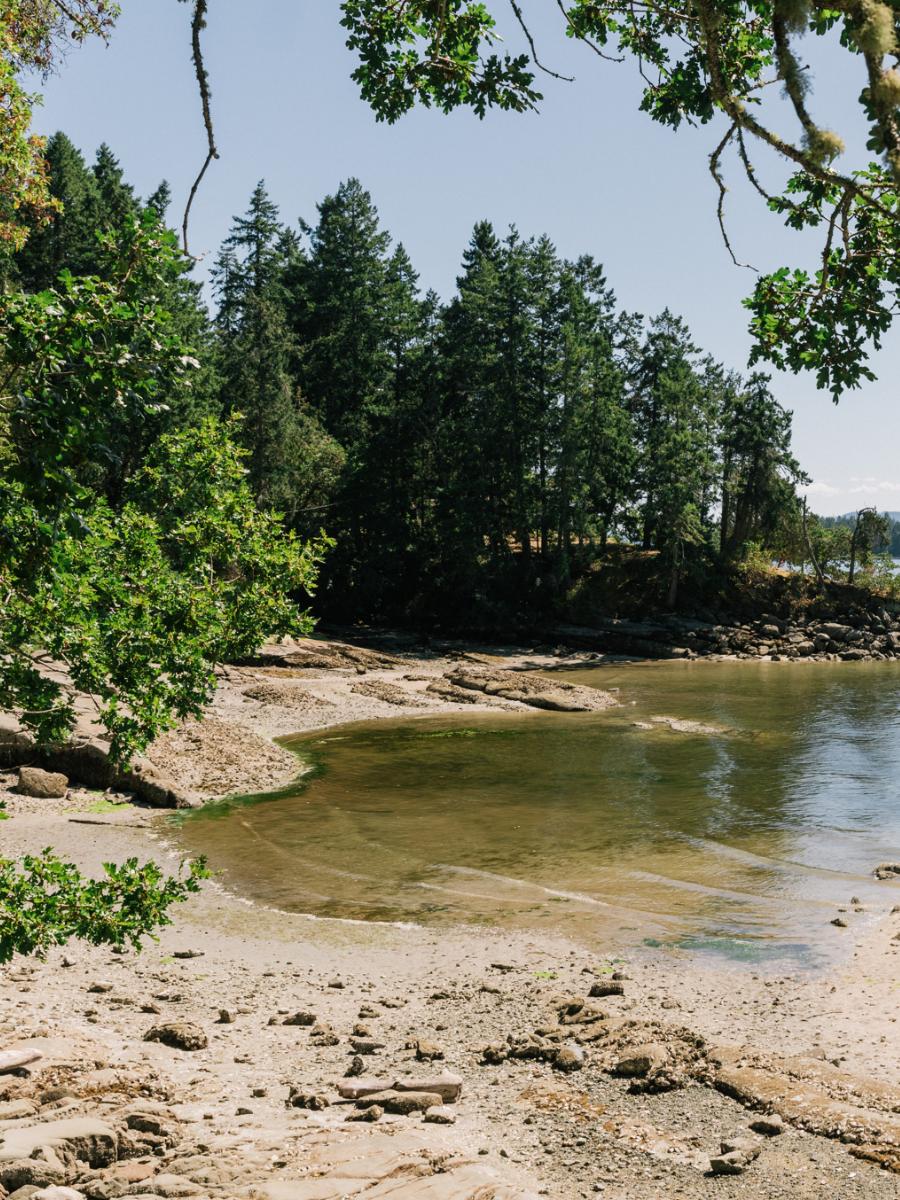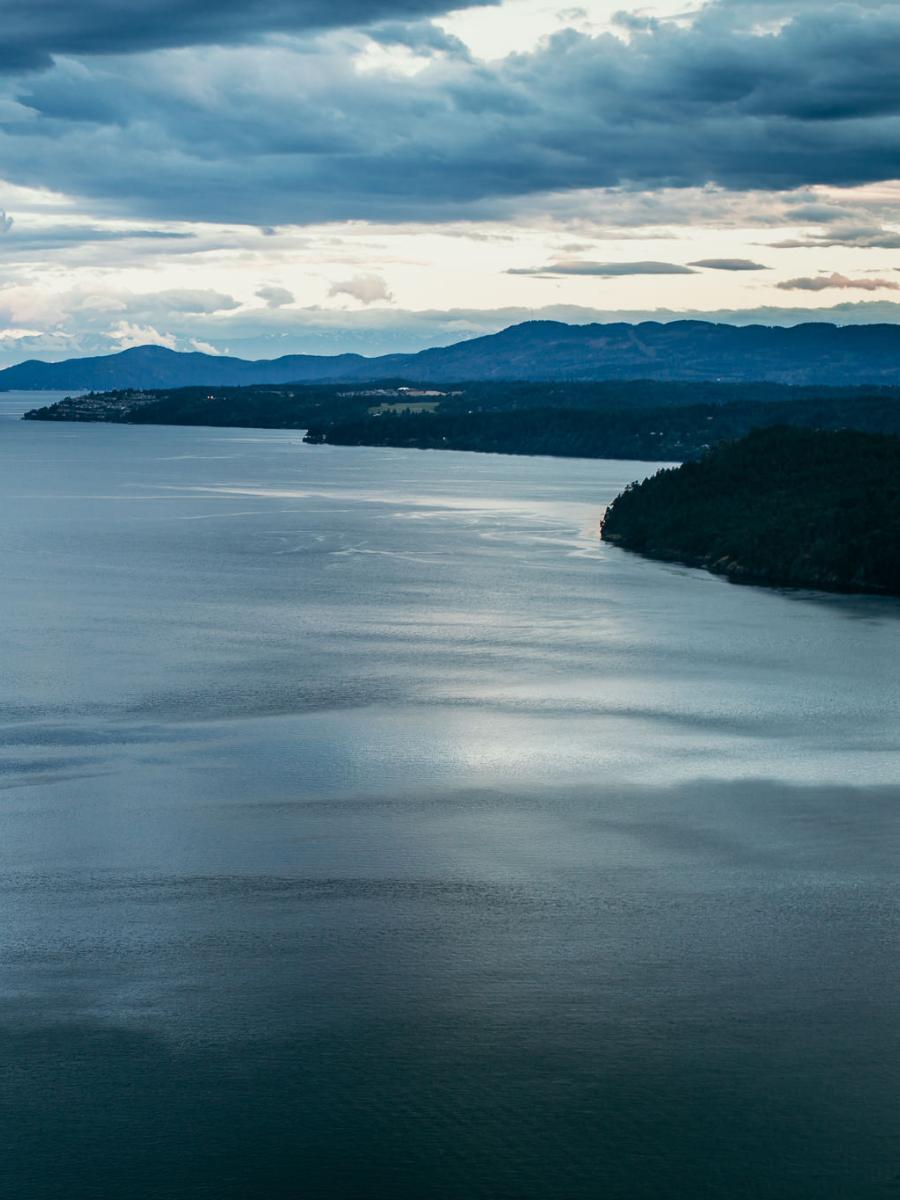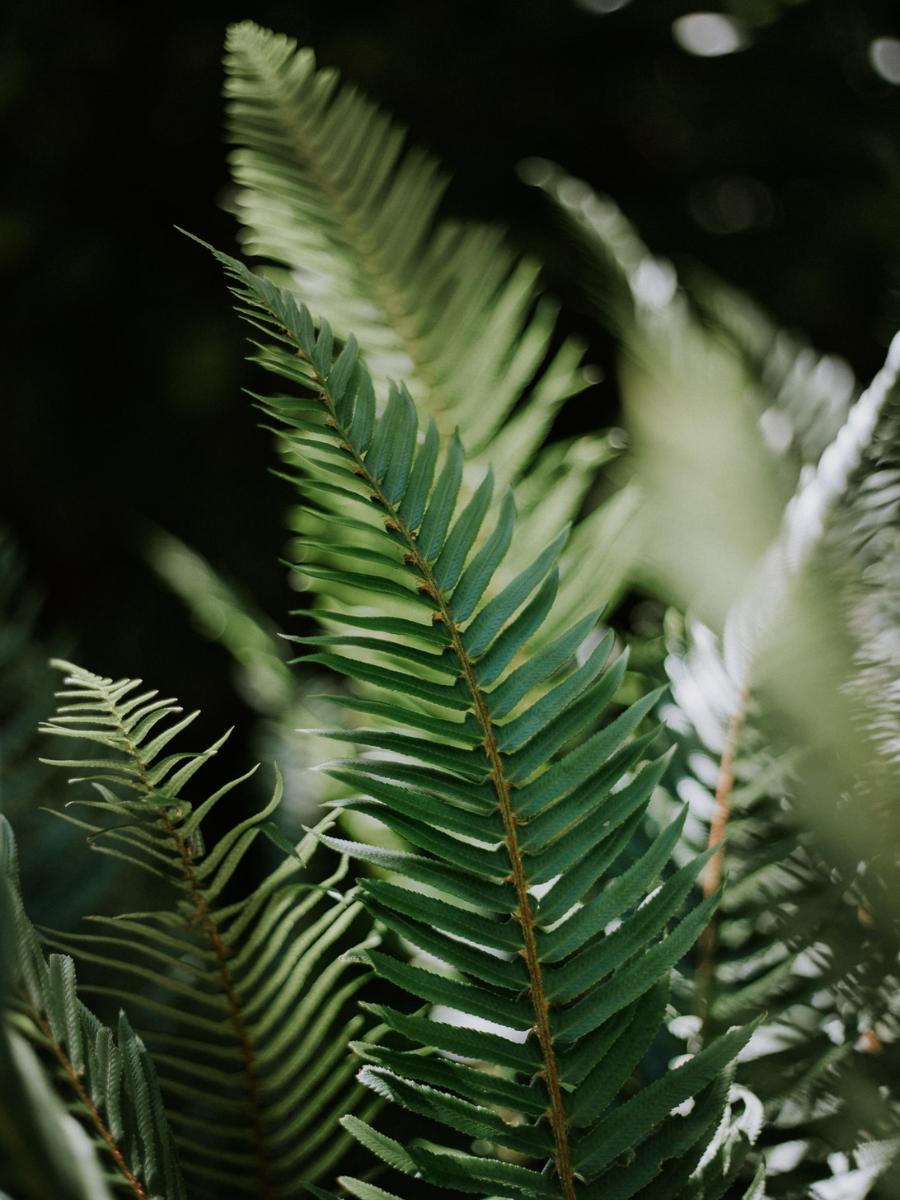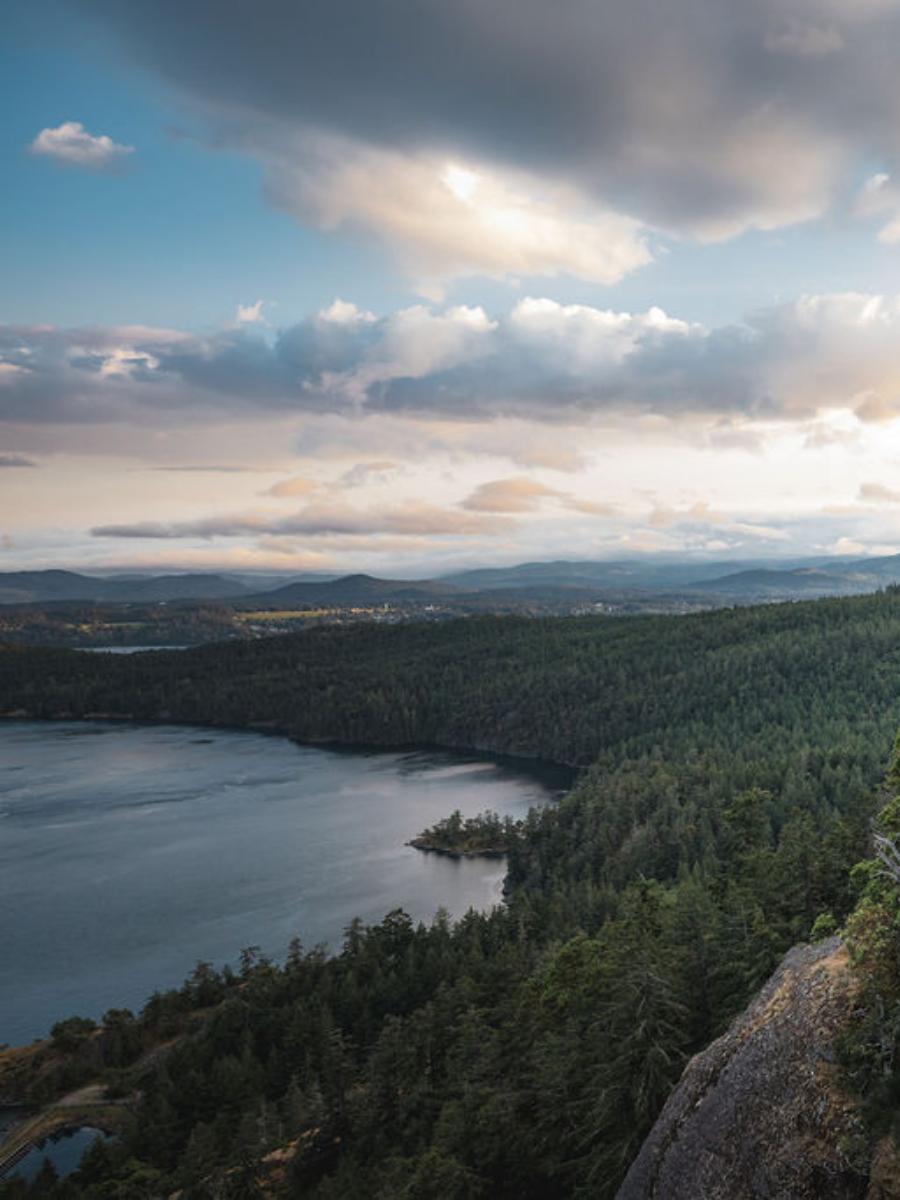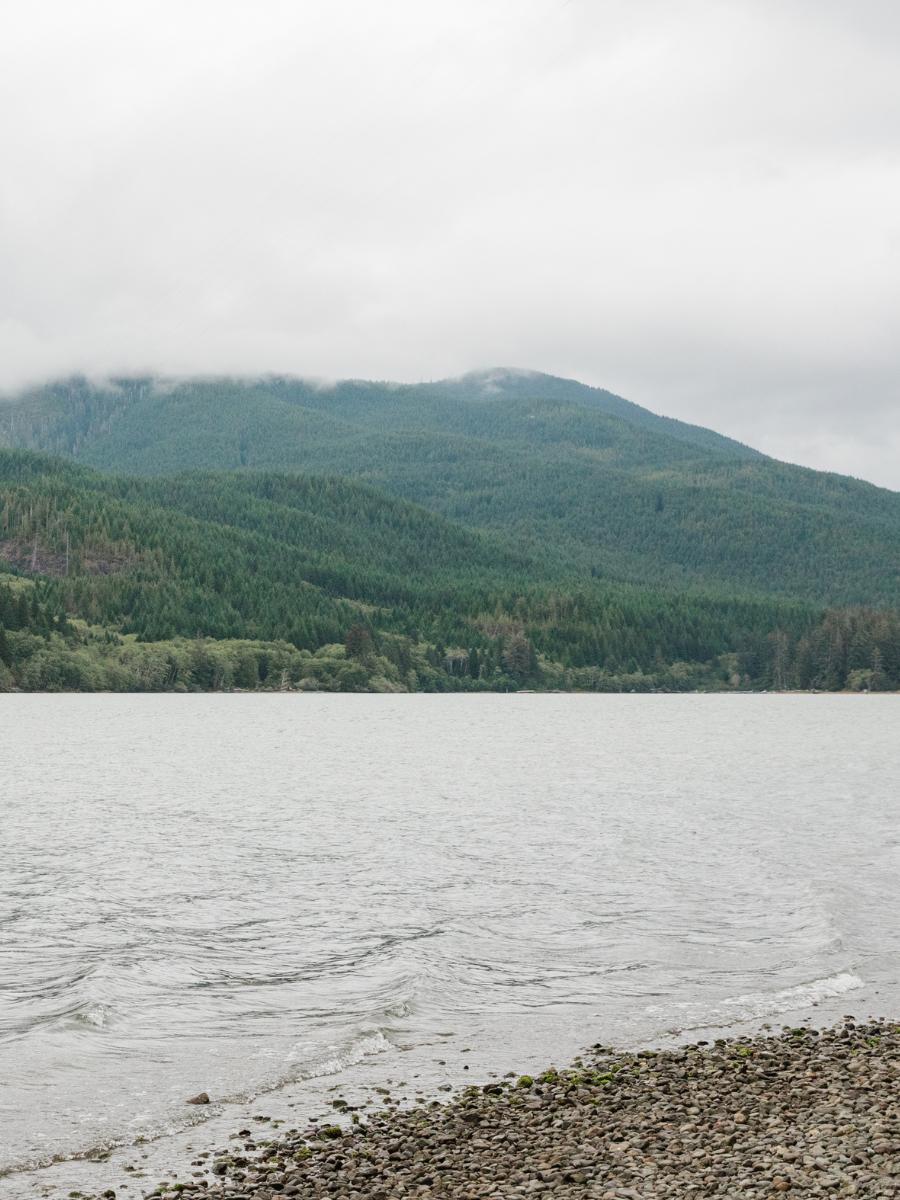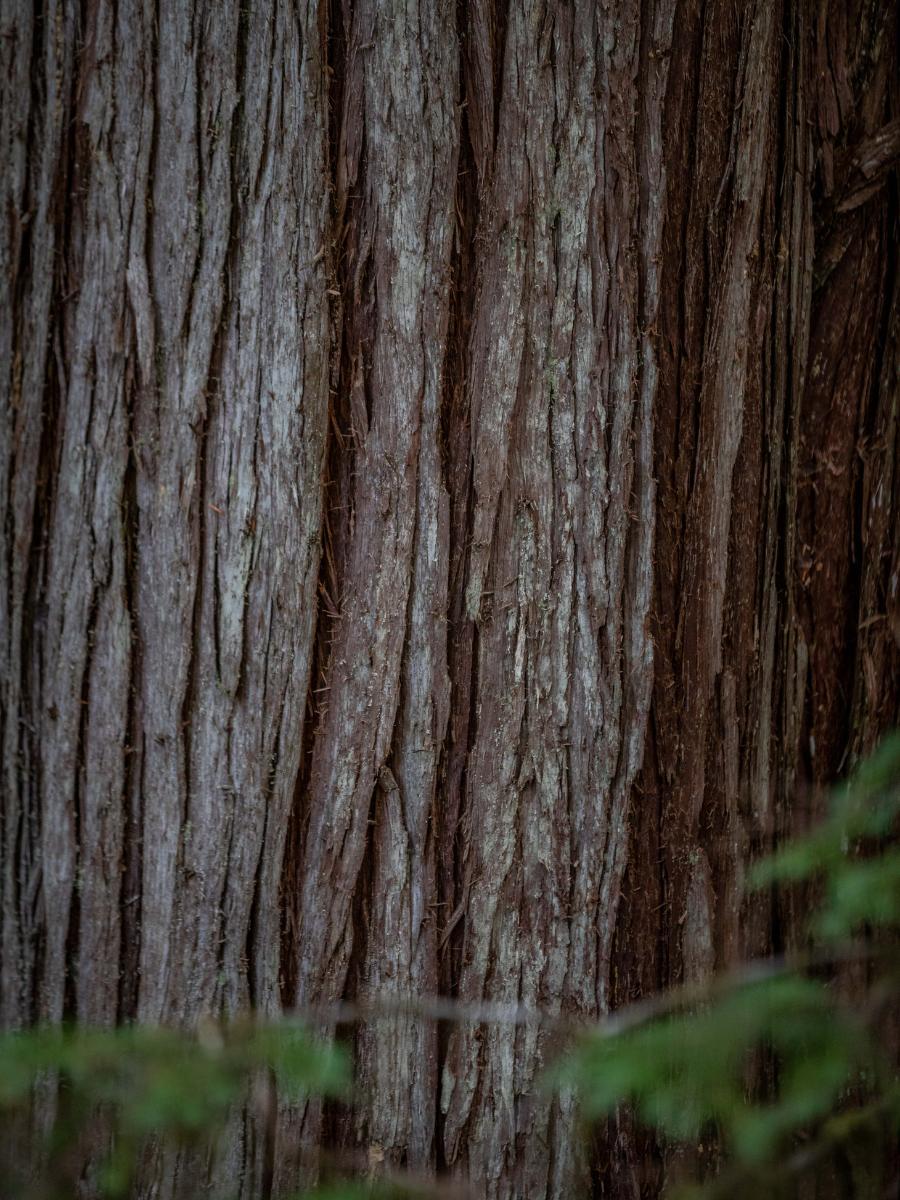Land Acknowledgement
Tourism Cowichan respectfully acknowledges that we operate on the unceded and traditional territory of the Quw’utsun, Malahat, Ts’uubaa-asatx, Halalt, Penelakut, Stz’uminus, Lyackson, Pauquachin, Ditidaht & Pacheedaht Peoples.
Many of the First Nations communities in the Cowichan region are Hul’q’umi’num peoples, who speak the Hul’q’umi’num language, within a larger First Nations group referred to as the Coast Salish People. Additionally, there are two First Nations part of the Nuu-Chah-Nulth peoples who speak Ditidaht.
‘Uy’ kw’unus ‘i lumnamu
“It is good to see you” – most Indigenous communities in the Cowichan region speak a dialect of Hul’qumi’num.
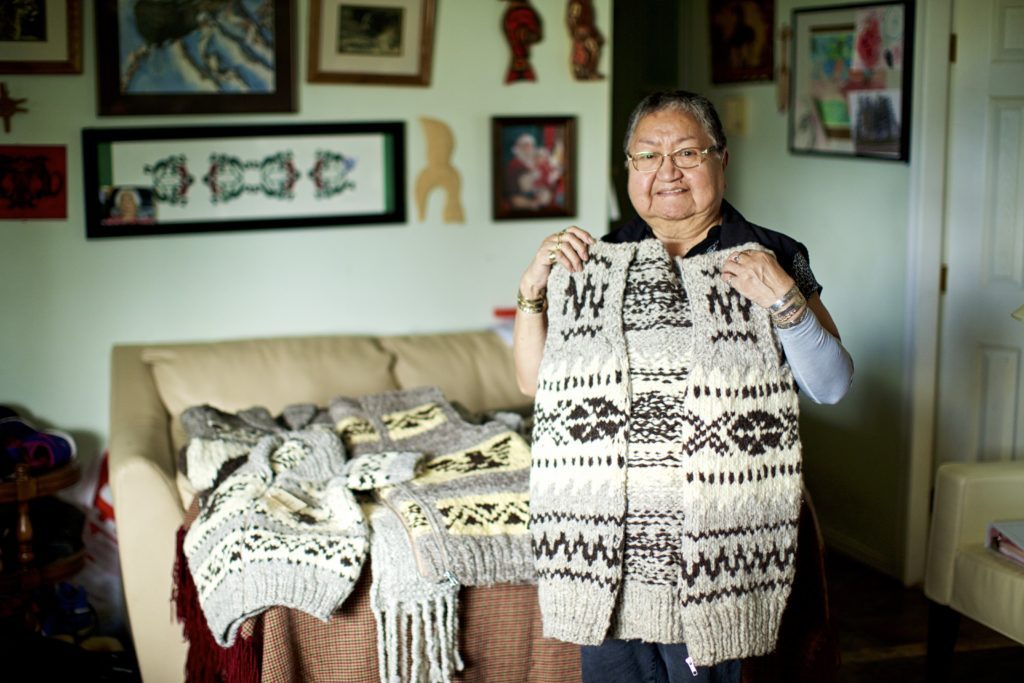
Cowichan Knitters
Made carefully with warmth and love by a group of dedicated knitters here in Cowichan – the iconic Cowichan Sweater is wooly and thick, often featuring classis Coast Salish motifs seen on totem poles like bears, ravens, thunderbirds and whales.
Pi’paam
This local landmark originally named “Shkewetsen” (“warming in the sun”) by the local people was renamed after Quamichan Chief Ts’uwxilum who was banished to the mountain by his own people.
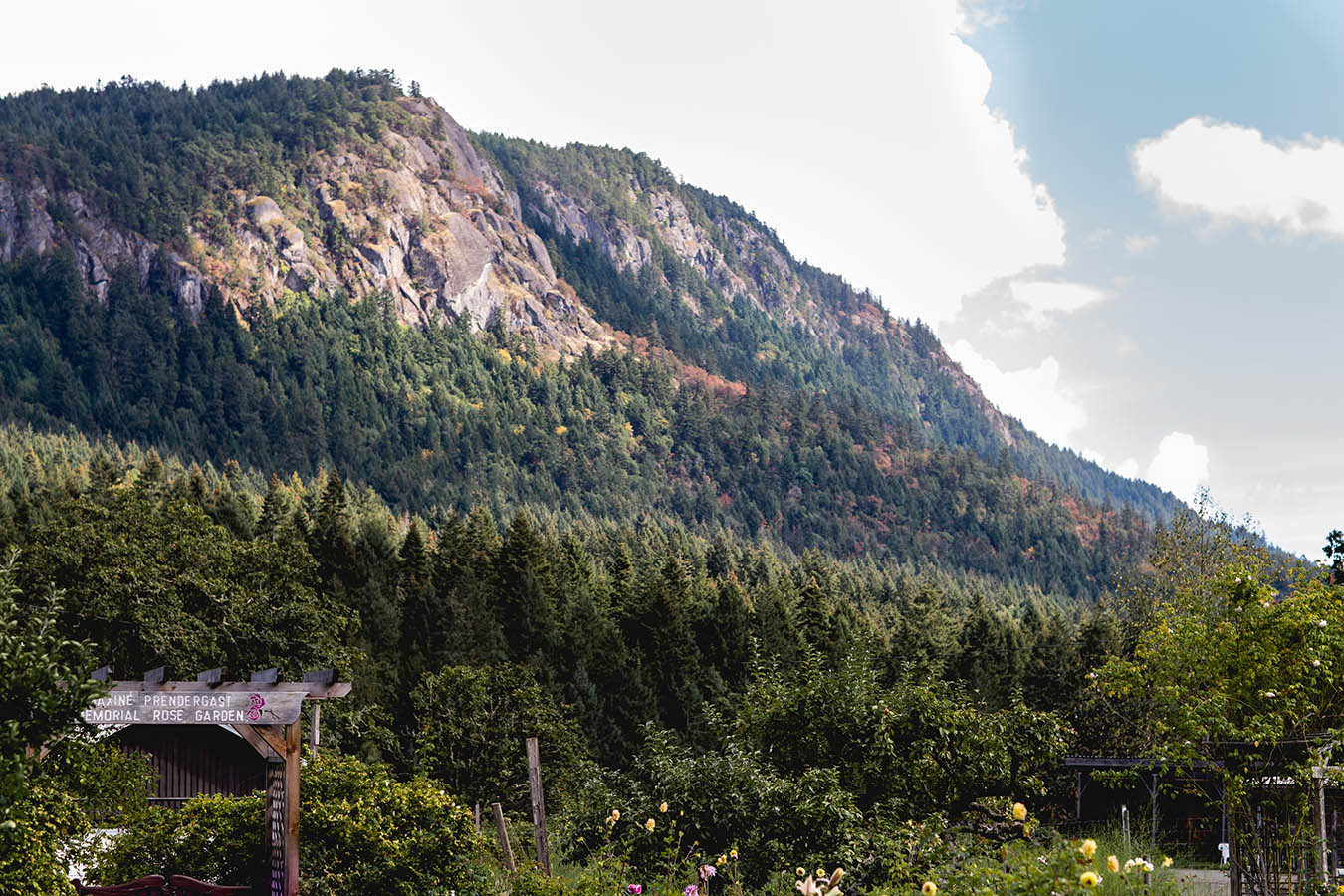
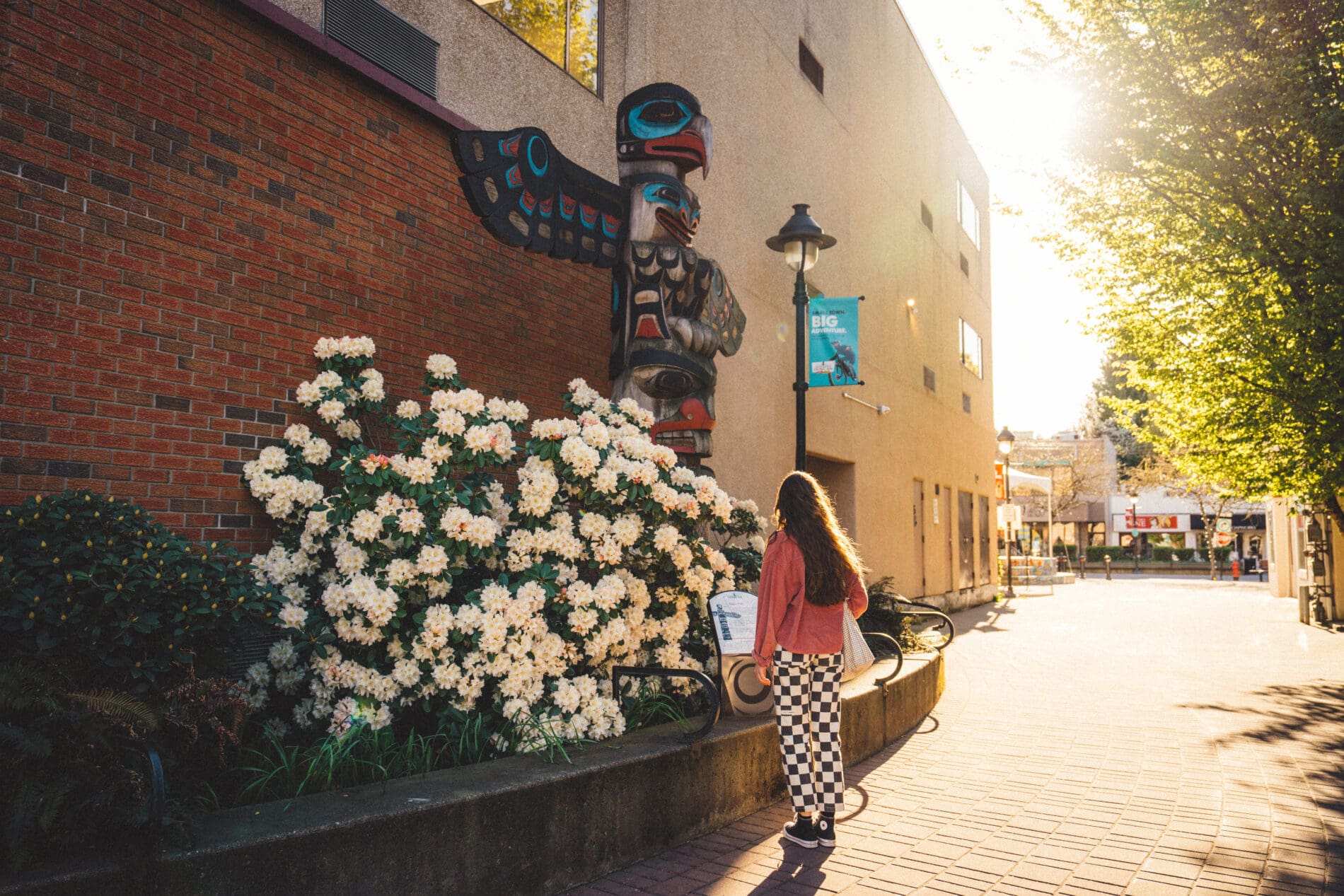
Duncan Totems
44 hand-carved and colourfully painted totem poles are spread throughout downtown Duncan. Typically carved from red cedar, these totem poles hold great cultural significance and each tells a compelling story.
Indigenous Culture
Each First Nations community in Cowichan offers different things such as browsing traditional art and culture, or enjoying unspoilt lands.
Kaatza Adventures
Owned and operated by Ts’uubaa-asatx. We offer non-motorized water sports equipment on Cowichan Lake.
Learn MoreNitinaht Campground
Nitinaht Lake – Gateway to the West Coast Trail (mid-point entrance) and Windsurf Park.
Learn MoreExplore
Along with the authentic Indigenous culture Cowichan offers, check out what other quirky and unexpected things there are.
Explore Cowichan